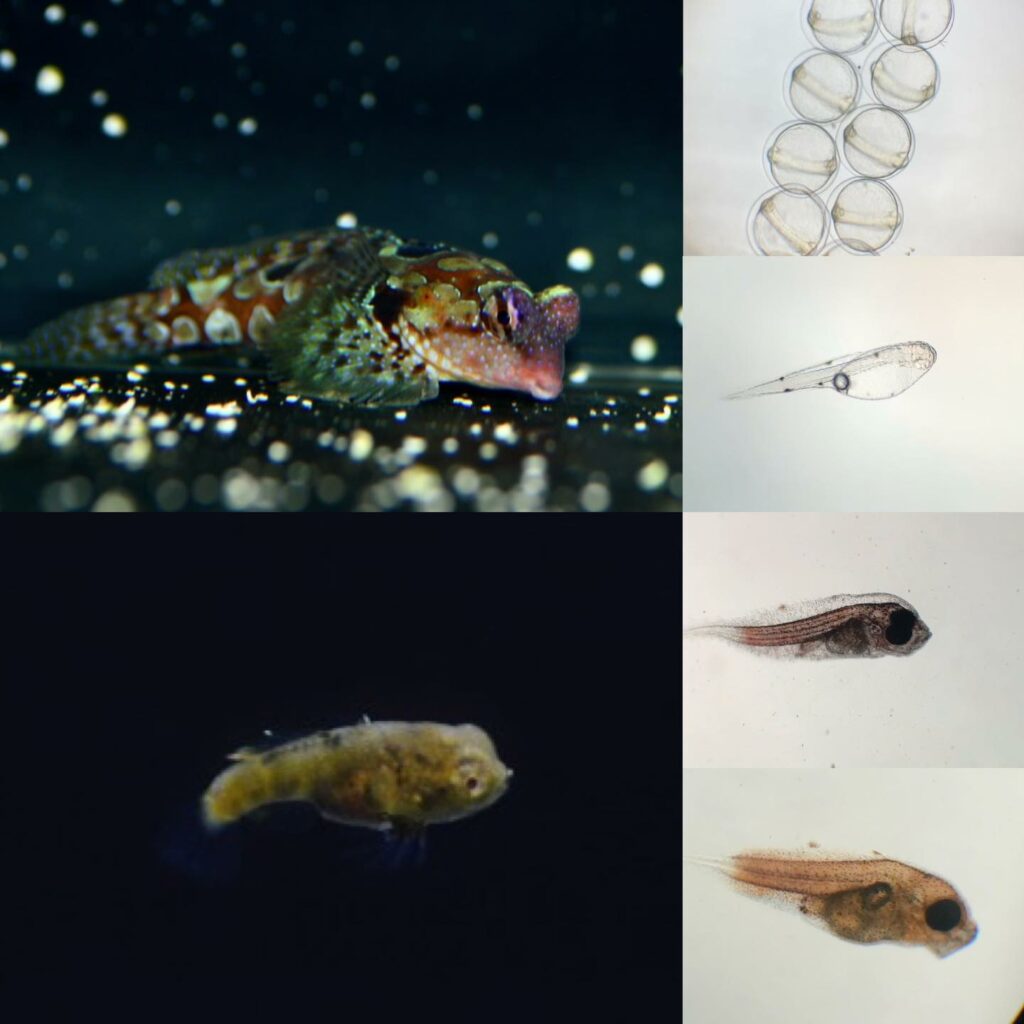
by Tom Verhoeven, via De Jong Marinelife
Synchiropus circularis is unique in having a very bold pattern of well-outlined circles on the sides and top of its body, like a Green or Spotted Mandarin, but it has a more muted coloration that helps it blend with benthic-encrusting organisms and coralline algae.

S. circularis is one of those “book fish” that we have admired in pictures and from a distance. This species is exceedingly rare and only shows up very sporadically and intermittently. In the last 10 years, it has only been collected a few times. In March, we were unpacking a shipment from the Philippines when we noticed two ‘strange’ dragonets. After unpacking, it became clear that we had just unpacked two of these beautiful S. circularis. We were lucky because it was a male and a female.
We transferred the fish to our quarantine breeding facility. Already after 1 week, they start mating and spawning. We still cannot believe how lucky we were. But this was not the end. We were also able to collect the first eggs and raise the larvae.
It’s a new species, and we knew nothing about larval development or what food they needed. Therefore, we applied the same protocols we are using for S. splendidus (Mandarin Dragonet) breeding. The larval development was the same, which made us able to give them the correct food. This resulted in small, incredibly cute, settled S. circularis.
At this moment, they are still too small for sale but we hope we can offer these little guys soon and bring a new species to the market. I’d like to thank our breeding team for all their efforts! Also, the breeding team fell in love with it and gave it a popular name: Our little Hutts (Star Wars)
###




